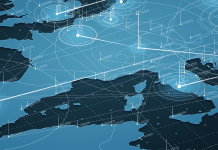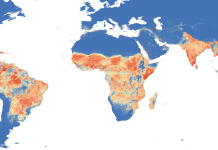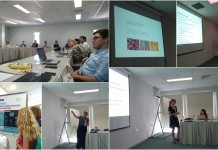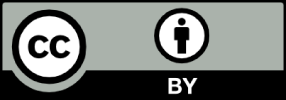Every year Opencon brings together leading students and early career academic professionals from across the world to discuss and learn about issues related to open science and how to improve access to the world’s information. FutureTDM was selected to participate in this years OpenCon conference.
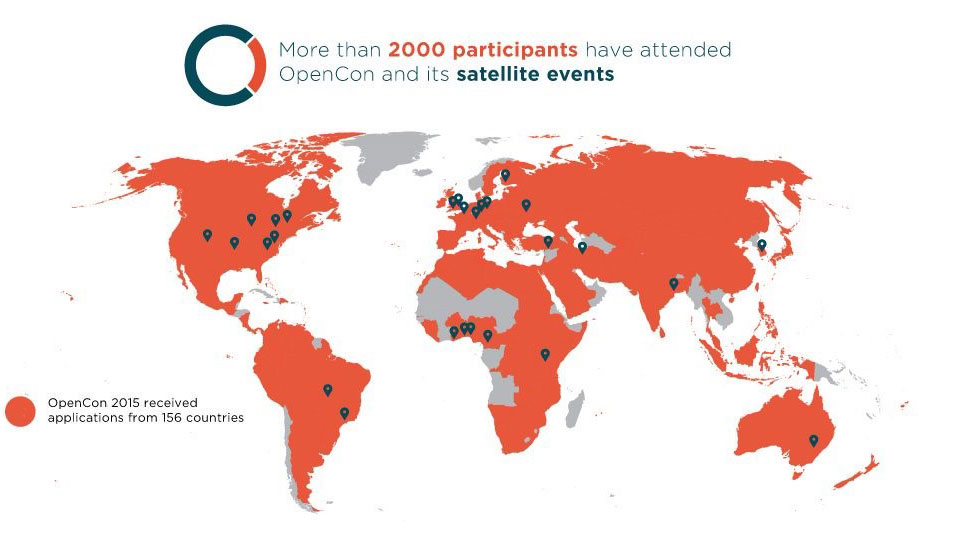
Welcomed by Nick Shockey, director of SPARC, the 3 day conference took off with presentations and panels covering a diverse range of topics and projects.
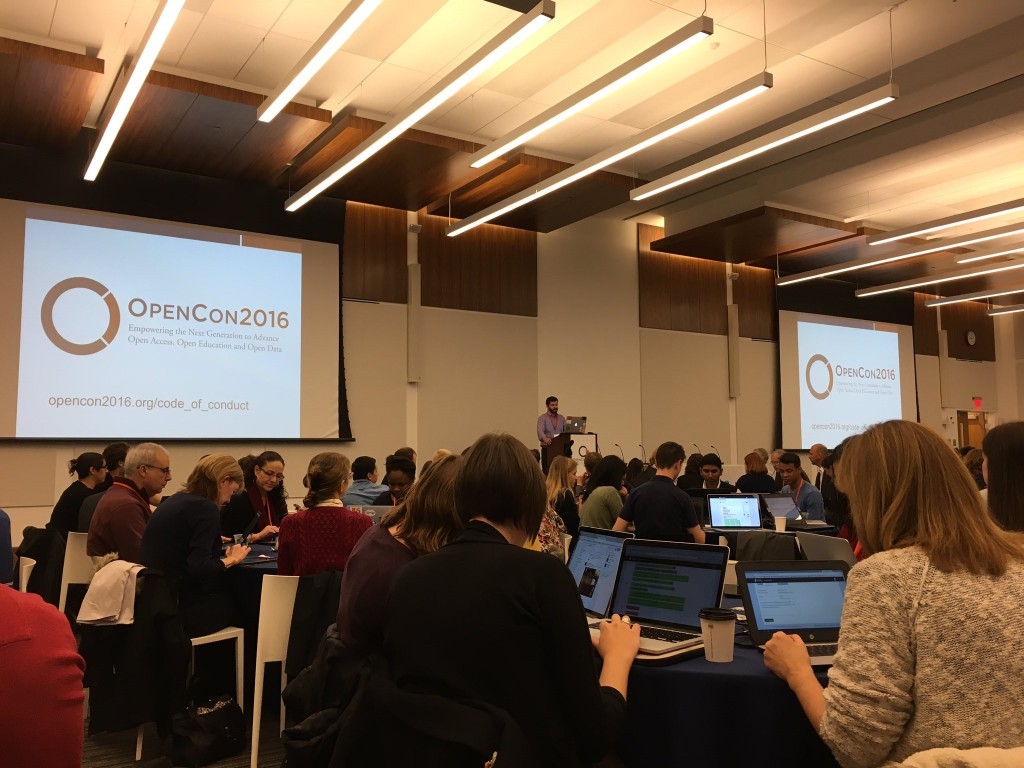
Highlights
Some of the projects we found particularly interesting included the CERN Open Data Portal.
Achintya Rao, communications officer for the Compact Muon Solenoid (CMS) collaboration explained how the development has been done openly on GitHub and how the Portal complies with established global standards in data preservation and Open Science. Through The Portal people can access a growing range of data produced through the research performed at CERN. For example it gives access to data from the LHC collaborations, including data recorded by CMS. When available the research data and accompanying software and documentation are included which is needed to understand and analyze the data being shared. To stimulate sharing, the licenses used are open licenses. The portal is available here http://opendata.cern.ch/?ln=en
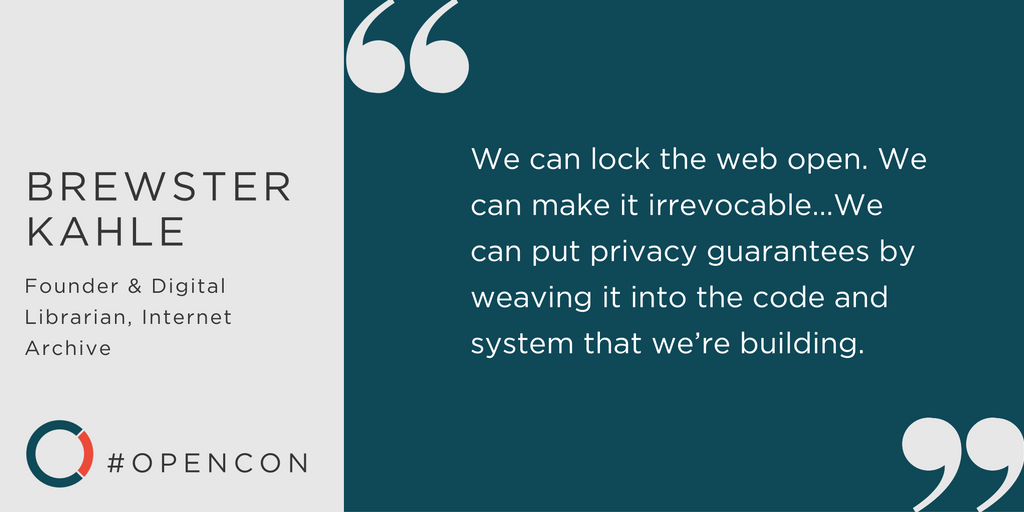
Another very interesting project for FutureTDM was presented by Sarah Parks, who is currently working for RAND Europe. The project funded by the European Commission aims to develop a framework for monitoring Open Science trends in Europe. The project includes tracking the different trends across countries and across disciplines. Still in its early stages, we look forward to hearing more about the examples and case studies used to gain insights in the status of open science in Europe.
‘The culture of research is changing’
In his video speech Carlos Moedas, European commissioner for Research, Science and Innovation spoke to the OpenCon community about the importance of data sharing.

Commisioner Moedas congratulated Chris Hartgerink on being awarded with the Right to Research Coalition Next Generation Leadership Award. Chris was awarded for his ongoing efforts challenging EU copyright and raising awareness for the barriers to research the current legal framework causes.
You can watch the full speech online https://www.youtube.com/watch?v=47jRmc28s0U&feature=youtu.be
Chris research is on data fabrication indicators, developing statistical methods and using TDM to analyze information from scientific papers. Chris has run into problems when text and datamining scientific literature. We spoke to Chris about his experiences and these barriers have been included in our report on barriers to TDM which is available in the FutureTDM Library
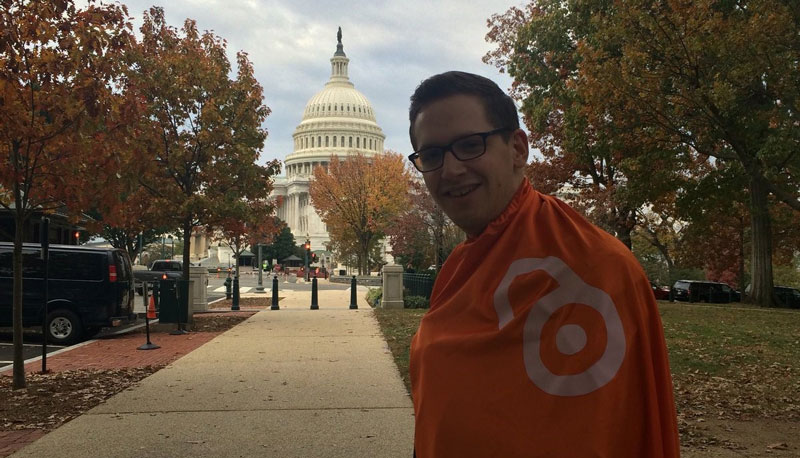
With the presidential elections only a few days before, It was not surprising to hear speakers speculate about the implications for research and the wider society. There were serious concerns about the negative impact of policy on diversity.
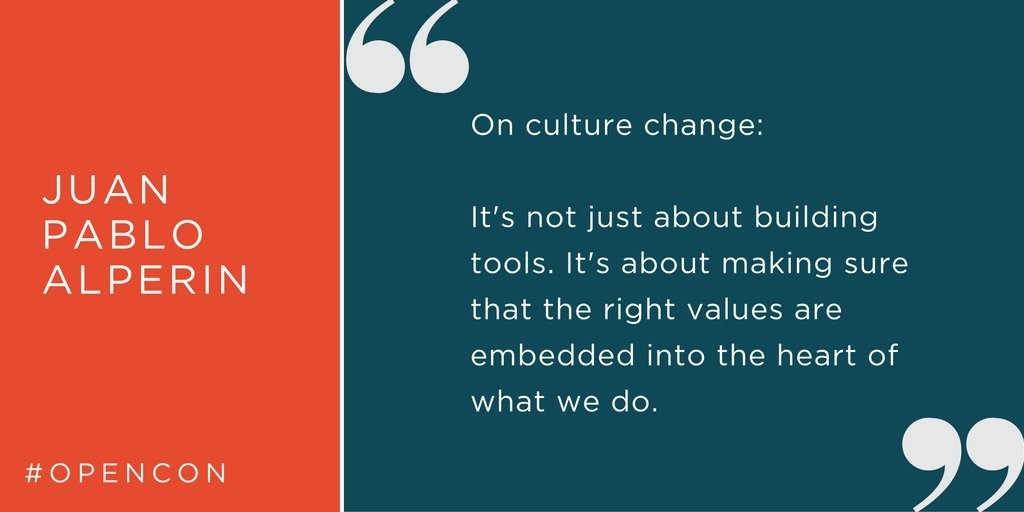
Another barrier presented by speakers had to do with language. Sometimes data is not available in the relevant language or research is not being taken into account because it is not published in English language research journals. This has indeed been identified as an issue relevant for the FutureTDM project as well as addressed within our sister project OpenMinTeD.
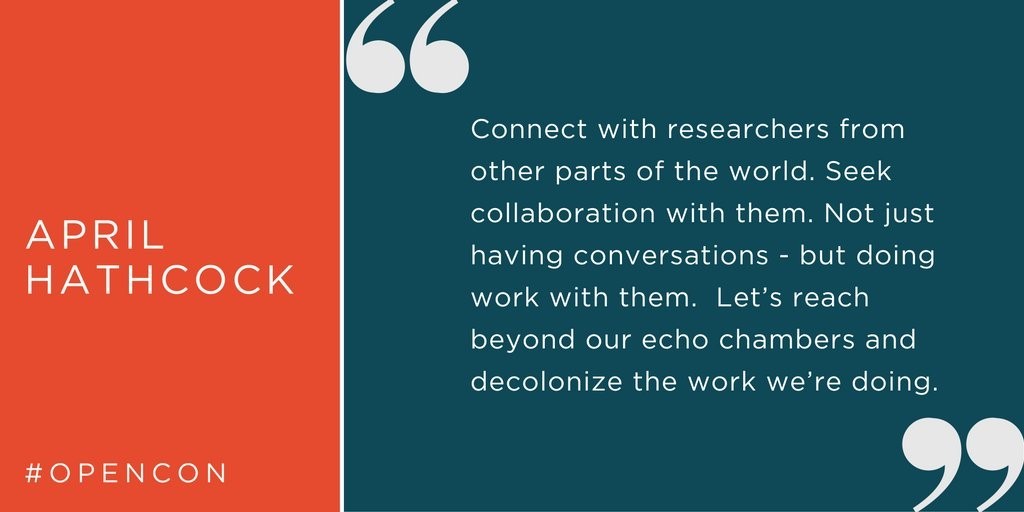
FutureTDM Unconference
We organized an unconference session to present the FutureTDM project and provide the community a change to give feedback. The discussions confirmed what we have identified through the knowledge cafe;s namely the lack of awareness in the different stakeholder communities about TDM. We will continue to address this issue when we develop the best practices, guidelines and recommendations.
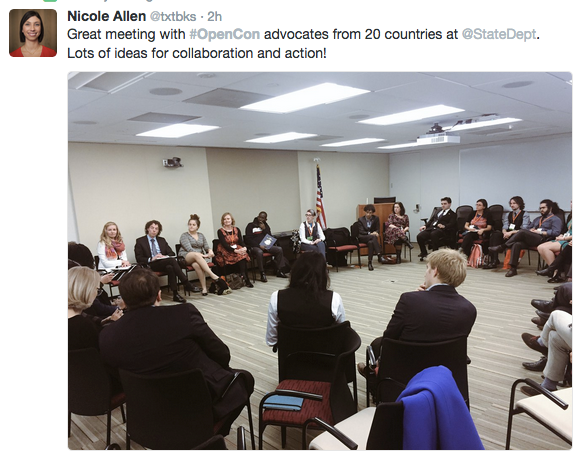
On the final day of the conference, the participants got to meet Congress, Administration, Agencies and Funders such as the Laura and John Arnold Foundation. For more information, visit http://www.arnoldfoundation.org/
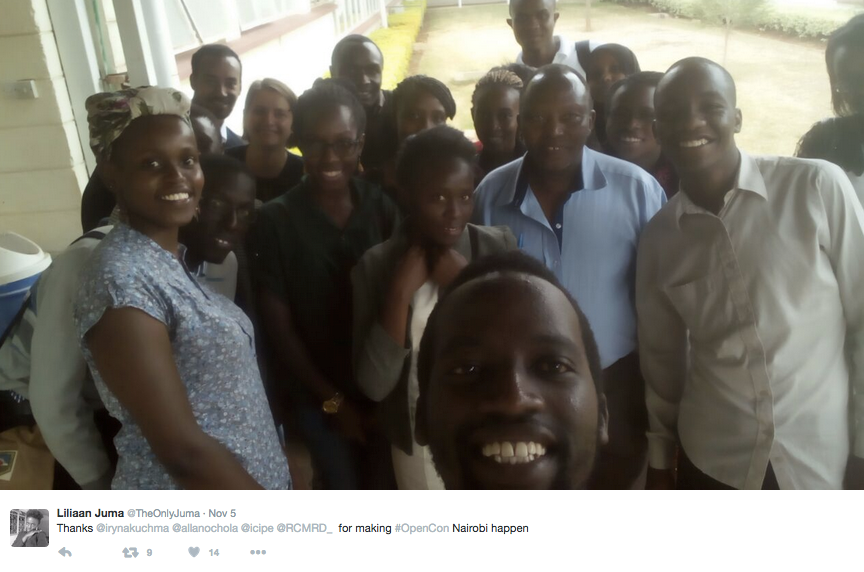
The conference provided us with the opportunity to engage with a wider community of students and researchers from various disciplines. We have been able to raise awareness and gained insight into the barriers for the uptake of TDM in Europe and outside of Europe that the research community is facing. We will use these insights for further research within the FutureTDM project.
If you are a student or early researcher, please contact us if you are interested in providing feedback or comments or want to share your experiences with using text and datamining. We would like to hear from you.
// All blog posts are the personal opinion of the bloggers. For more information see FutureTDM's DISCLAIMER on how we handle the blog. //



